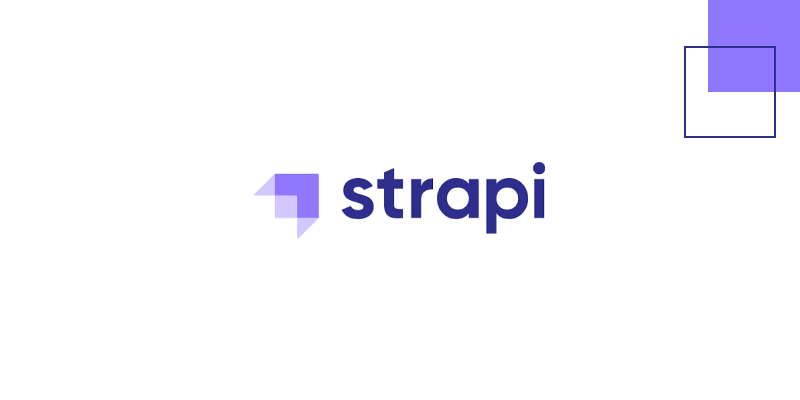
In 2024, Angular continues to be a popular framework for building dynamic web applications, and developers are increasingly turning to headless CMS (Content Management Systems) to manage content.
There's a variety of options for CMS based on the project needs (frameworks compatibility , content complexity ) .
A headless CMS separates content management from the frontend, providing developers with flexibility in how they deliver content for the benefit of their website applications.
This article explores the best open-source headless CMS options for Angular, compares them, and discusses their suitability for both small projects and enterprise level applications.
What is a Headless CMS?

A headless CMS is a backend-only content management system that delivers content via APIs to any frontend.
Unlike traditional CMS platforms that control both the content management and presentation layers, a headless CMS focuses purely on content management, leaving the frontend development to frameworks like Angular.
For more insights on managing backend infrastructure, check out our Guide to Backend Distribution Systems, which explores efficient content distribution strategies.
Why Use a Headless CMS with Angular?
- Flexibility: Angular developers can design custom frontends without the constraints of a traditional CMS.
- Scalability: Headless CMS solutions can handle large volumes of content without compromising frontend performance.
- Unified Content Delivery: Content is delivered smoothly and consistently across different platforms like websites, mobile apps, and smart devices, ensuring the same experience everywhere.
- Implement
asyncPipe in Template: Theasyncpipe in Angular is used to subscribe to the Observable and automatically display the data once it arrives without needing manual subscription.
Here's a tutorial to set up async pipe in angular .
Top Open-Source Angular CMS Projects
For developers looking to integrate a CMS directly into their Angular projects, there are several open-source Angular CMS options. These projects allow for tight integration with Angular's architecture, offering both content management capabilities and flexibility in frontend design.
Strapi

- Overview: Strapi is a popular open-source headless CMS that works well with Angular. It offers an intuitive admin panel and a powerful API.
- Features: Customizable with plugins and extensions. Supports both RESTful and GraphQL APIs. Role-based access control for secure content management.
- Best For: Projects requiring a flexible, feature-rich CMS with strong community support.
Strapi is also a very compatible management system for react . Read more about the other alternative CMS compatible for React.
Directus
.png)
- Overview: Directus is a versatile headless CMS that interfaces with SQL databases, making it ideal for Angular projects needing database control.
- Features: API-first approach with real-time data updates. User-friendly admin interface. Supports multiple SQL databases.
- Best For: Applications needing custom database management with Angular.
KeystoneJS
.png)
- Overview: KeystoneJS is a powerful Node.js-based headless CMS. It's designed for developers who want to build dynamic applications with a custom backend.
- Features: GraphQL and RESTful APIs. Flexible schema definition and built-in field types. Extensible with plugins and custom logic.
- Best For: Developers who need deep customization and strong integration with modern JavaScript technologies.
There's a ton of JavaScript frameworks including AI- enabled libraries for both front end and back-end development of your web application.
However , if you're looking to choose the best possible framework fit for your project we have mentioned ( VUE & React) to elaborate on the key factors to select the best front end framework.
Ghost
.png)
- Overview: Originally a blogging platform, Ghost has evolved into a content-focused headless CMS. It's particularly suited for content-heavy Angular applications.
- Features: API-first approach with a focus on content delivery. Built-in SEO and social sharing tools. Easy integration with Angular via its API.
- Best For: Content-driven websites and blogs needing a powerful, content-centric backend.
Sanity
.png)
Contentful
.png)
- Overview: Contentful provides a powerful content management platform with a strong developer API. It integrates seamlessly with Angular and offers a wide range of features, including content modeling, workflows, and localization. 1. Content Delivery API | Contentful www.contentful.com
Prismic
.png)
- Features: User-friendly interface, strong focus on content management, and a large ecosystem of plugins.
- Best for: Content creators who need a simple and intuitive CMS.
- Overview: Prismic's focus on content management and ease of use makes it a great choice for teams that prioritize content creation. It offers a visual editor, content modeling, and integration with Angular. 1. Best Headless CMS: How to Choose a Content Management System - Prismic prismic.io
Headless CMS Comparison
When comparing these headless CMS options, several factors should be considered:
- Customization: KeystoneJS offers the most flexibility, allowing developers to deeply customize the backend. Strapi also provides extensive customization through plugins.
- Ease of Use: Strapi and Directus both have user-friendly admin panels, making them accessible to non-developers.
- API Support: All the CMS options support RESTful APIs, but Strapi and KeystoneJS also support GraphQL, providing more flexibility in querying content.
- Community and Support: Strapi and KeystoneJS have active communities, which can be a significant advantage for developers seeking help and resources.
Enterprise Headless CMS Options
For large-scale, enterprise-level applications, the choice of a headless CMS becomes even more critical. Enterprises require robust, scalable solutions that can handle large volumes of content and complex workflows.
- Strapi: Ideal for enterprises due to its extensive customization options, strong API support, and role-based access control.
- Directus: Suitable for enterprises that need direct control over their databases, with the ability to manage complex data structures.
- KeystoneJS: A great choice for enterprises looking to build highly customized applications with deep integration into the Node.js ecosystem.
Conclusion
Choosing the right headless CMS for your Angular project depends on your specific needs. For small to medium-sized projects, Strapi or Ghost might be the best choice due to their ease of use and strong community support. For more complex or enterprise-level applications, Directus and KeystoneJS offer the flexibility and power needed to handle advanced requirements.
By leveraging the power of a headless CMS, Angular developers can create scalable, flexible, and efficient applications that deliver content seamlessly across multiple platforms. Whether you're building a simple blog or a complex enterprise application, there's a headless CMS option that can meet your needs.
